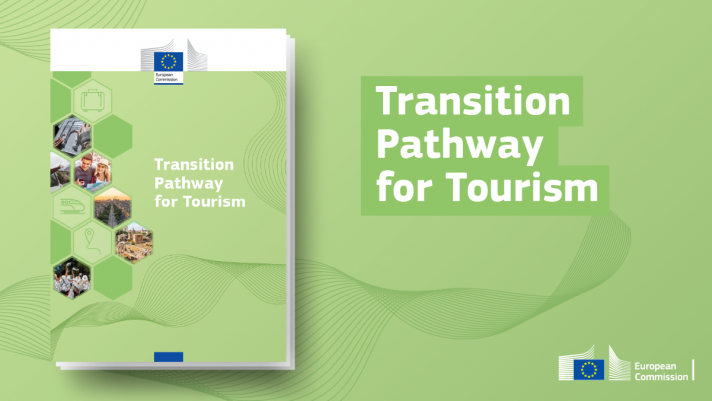
CECOP has contributed to the development of the European Commission’s Transition Pathway for Tourism, which puts forward specific actions to advance green and digital transition in the tourism sector. The tourism ecosystem is one of the 14 industrial ecosystems identified by the European Commission in the 2021 Industrial Strategy update, and the first one for which the European Commission has developed a pathway. The work on transition pathways is carried out by the Commission in collaboration with public and private stakeholders.
In the Transition Pathway for Tourism published on 4 February 2021 (full text), the European Commission takes on board CECOP’s suggestions with regard to acknowledging the role of platform cooperatives, as well as the role of community cooperatives in local development.
In line with CECOP’s suggestion, the Commission states that “In the future, local communities could become a key player in the transition towards sustainable tourism through social economy approaches. This could take place, for example, through community cooperatives or other forms of SMEs in which the local actors of the tourism supply chain are involved in the ownership of shared assets (promotion of the destination, coordination between tourist facilities, co-design and governance of online booking systems).”
Moreover, the Commission also takes on board the idea that platform cooperatives offer the tourism sector a community-owned data management model, and points out that “Actions are necessary to develop and enhance tourism service initiatives in which the data is community owned, like in case of platform cooperatives.”
The next step is implementation of the Transition Pathway for Tourism, for which the European Commission invites commitments, pledges and expressions of interest from various stakeholders who are committed to advancing the green and digital transition. The call for commitments is open until the end of May 2022.
Finally, the European Commission has also published an online guide on EU funding for tourism which includes a wide range of funding programmes.
Picture: European Commission







 Sustainable Growth
Sustainable Growth 

